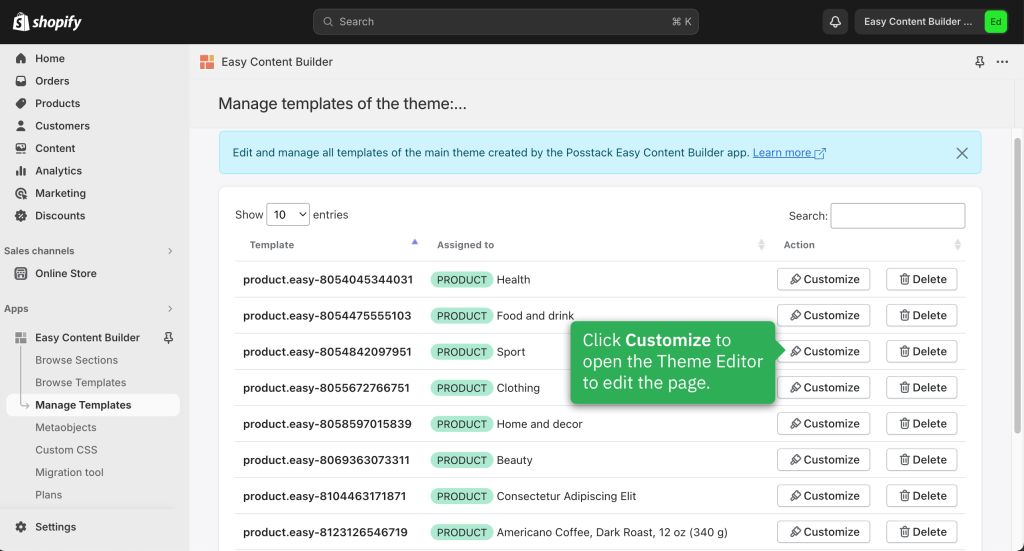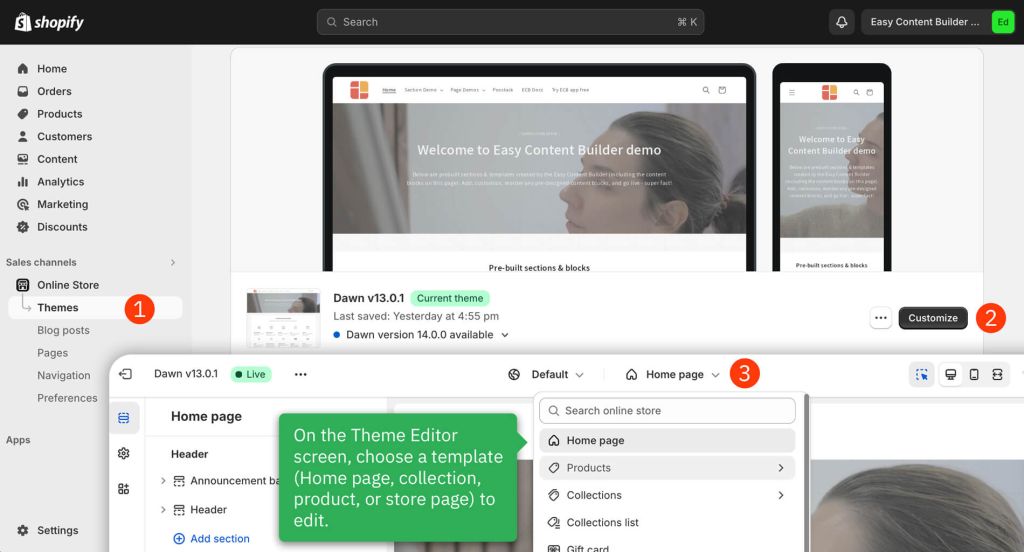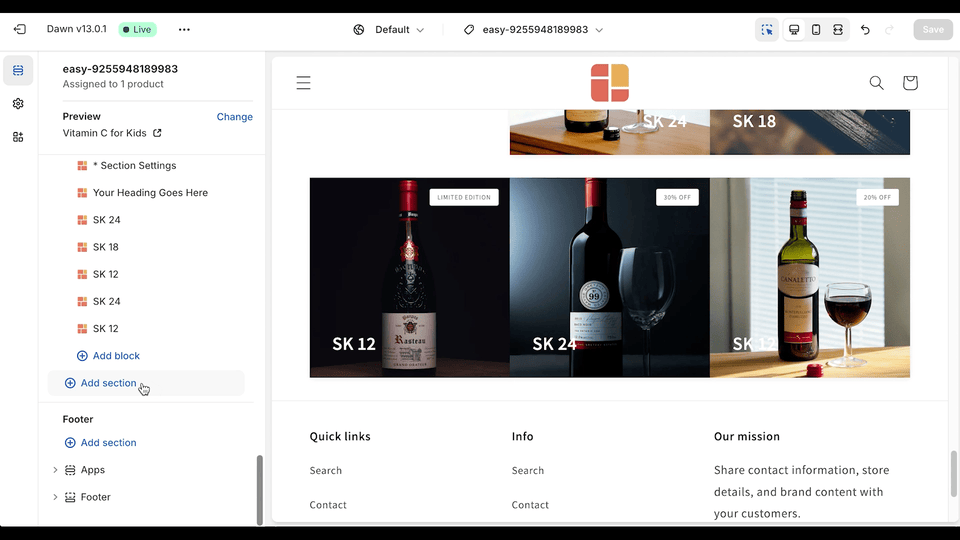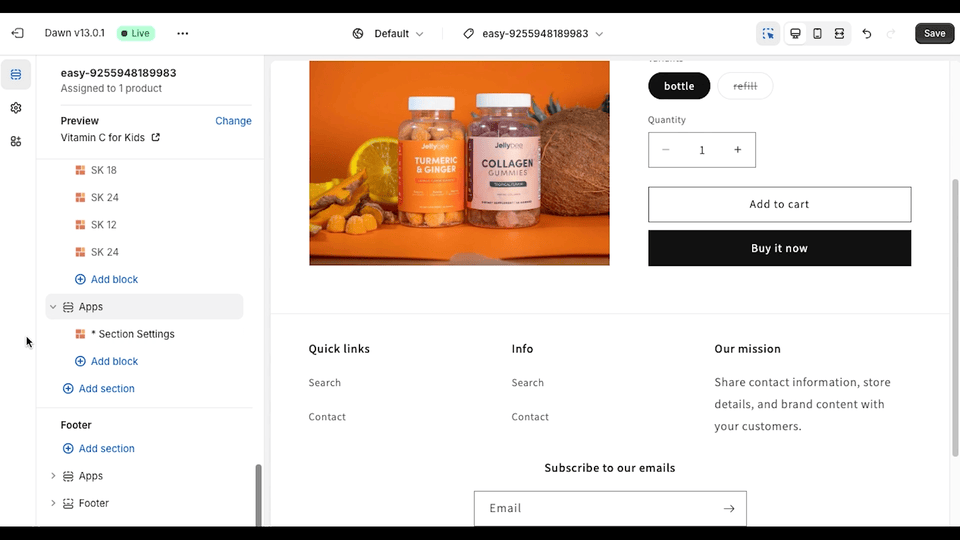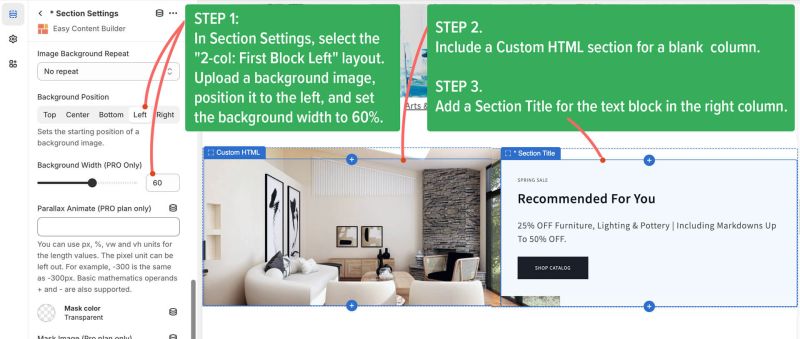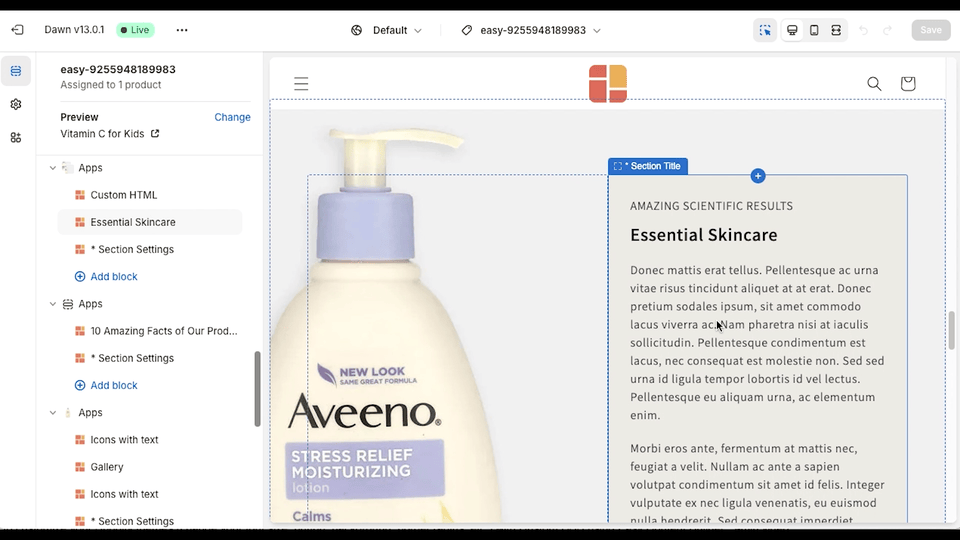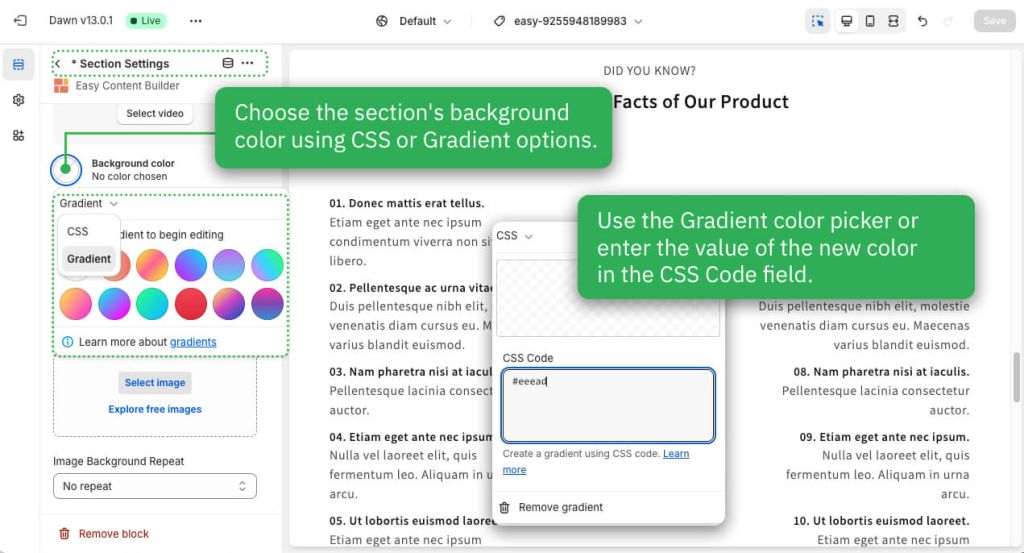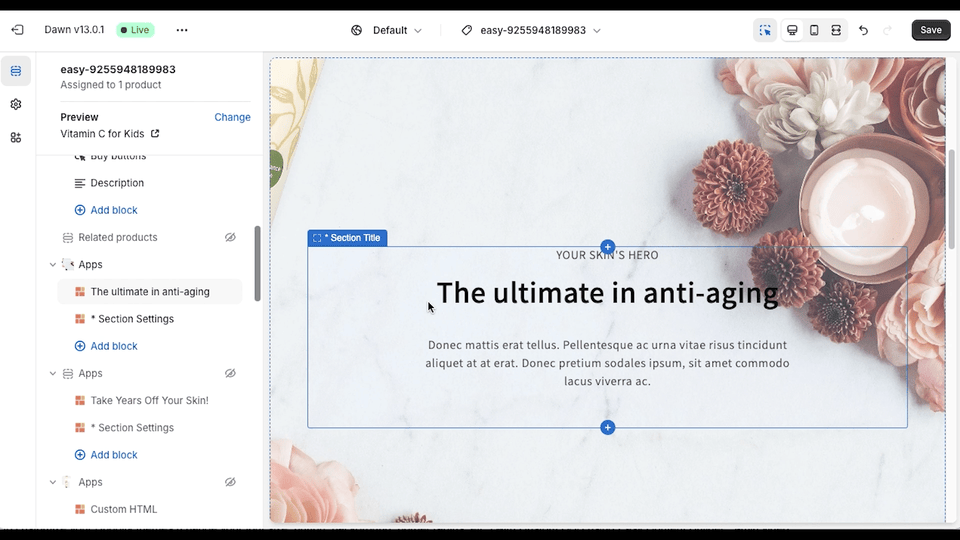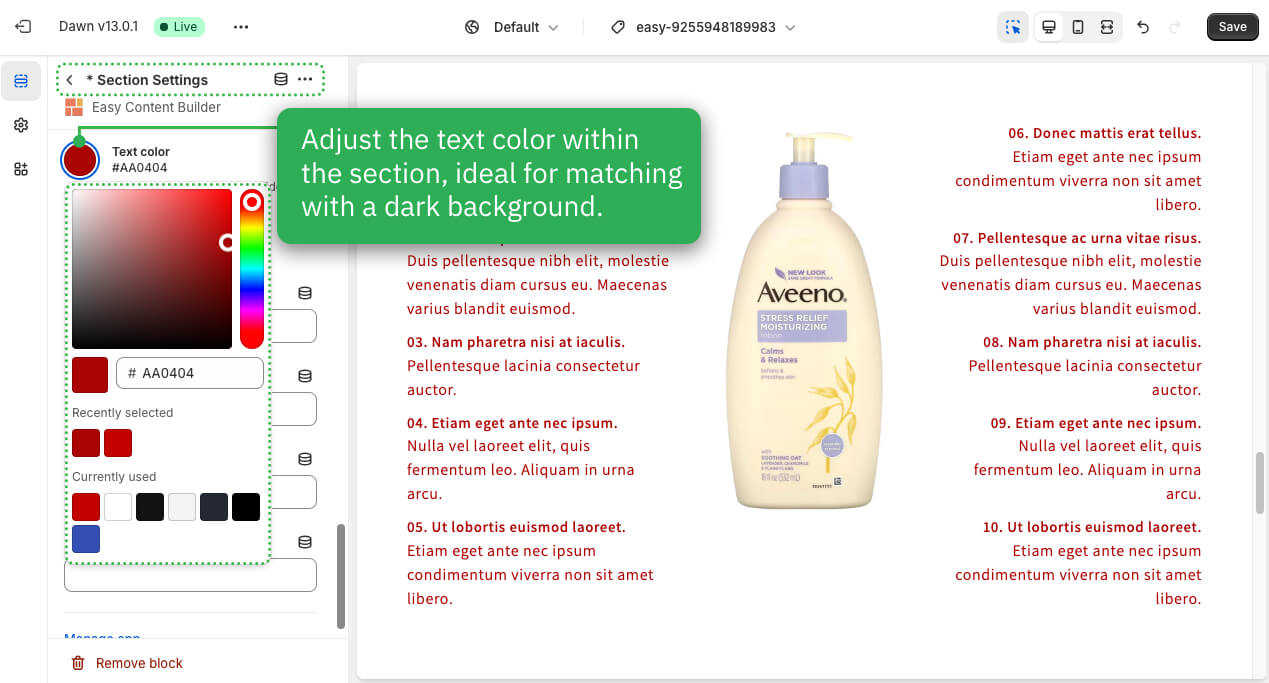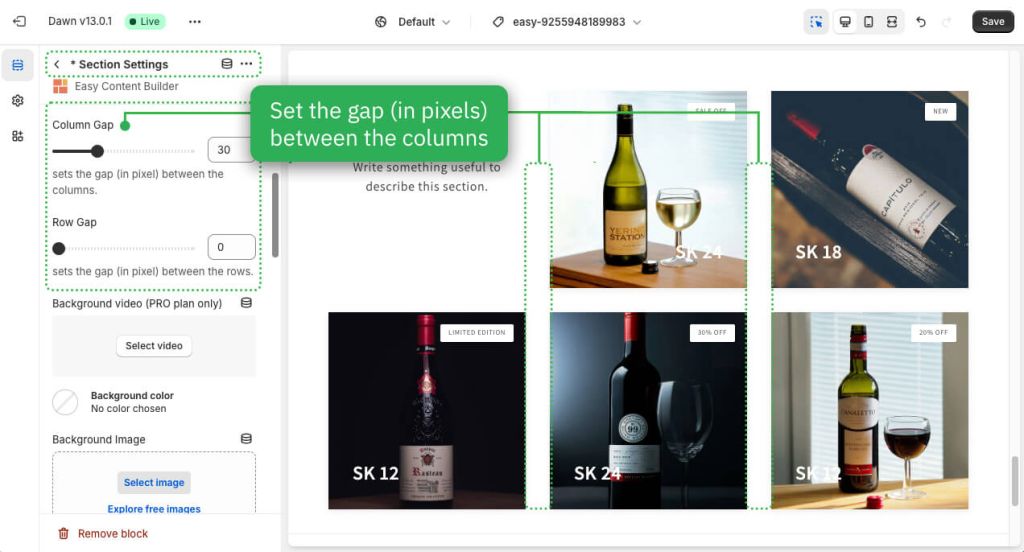Adding Sections
This guide explains how to add new sections to a template. To create a new template, check out this guide: Create a template.
Steps Overview:
- Select a template.
- Add sections to the template.
Watch video tutorial
Be sure to watch the step-by-step video tutorials demonstrating how to utilize the sections provided in Posstack Easy Content Builder, available here.
Select a template
From the Manage Templates page:
- Click Apps > Easy Content Builder > Manage Templates.
- Find the template that you want to edit.
- Click Customize to edit the template.
From the Shopify Theme Editor:
- Select Online Store > Themes.
- Next to the theme that you want to edit, click Customize.
- It will navigate to the Theme Editor.
- On the Theme Editor screen > Use the Template drop-down menu to select a template (Home page, collection, product or store page) that you want to edit.
Add Section
To add a new section, you need to add a special block called Section Settings.
This block allows you to manage the layouts of your section by choosing your preferred layouts (1-column, 2-column, 3-column, 4-column, or hierarchical layouts) and global configurations (full-width layout, mask color, mask image, background video, parallax animation, etc.).
This video provides instructions on adding your first section:
- After adding the Section Settings block, the theme editor preview will show a blank placeholder. Once you add the new content blocks as per the guide Add Blocks below, they will appear in the theme editor.
Add Blocks
After adding your first section, add the blocks you want for this section by following the video tutorial below:
Edit Section Settings
Now that you've added your first section, it's time to further customize this specific section by utilizing the advanced features available in the Section Settings block.
Add multi-column layouts
You can define your preferred section layouts (1-column, 2-column, 3-column, 4-column, or hierarchical layouts) by watching the video tutorial below:
- Check out this guide for various multi-column layouts that you can use to customize your Shopify theme.
Add Colorful Sections
To achieve lively, colorful sections on a page, you can combine both background colors and images through the Section Settings.
Here are two examples for creating these vibrant sections:
- Example 1: Use the Image With Text option along with Section Settings.
- Example 2: Combine several sections with Section Settings.
EXAMPLE 1:
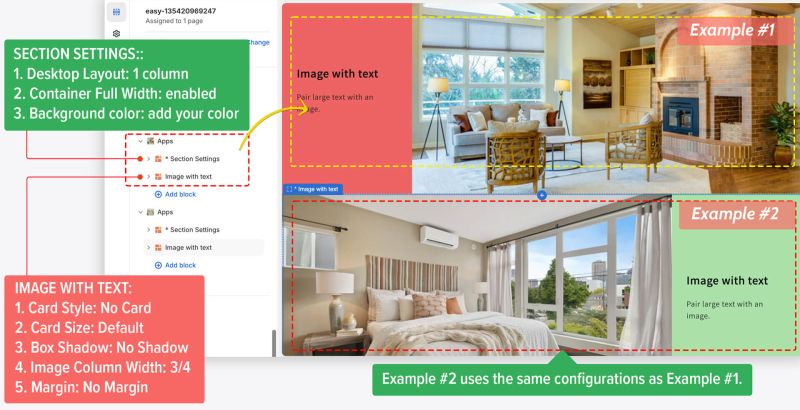 STEP 1: Configure Section Settings
STEP 1: Configure Section Settings
- Desktop Layout: 1 Column
- Container Full Width: Enabled
- Background Color: Set your desired color.
STEP 2: Add and configure Image With Text
- Card Style: No Card
- Card Size: Default
- Box Shadow: No Shadow
- Image Column Width: 3/4 (or change to your desired ratio)
- Margin: No Margin
EXAMPLE 2:
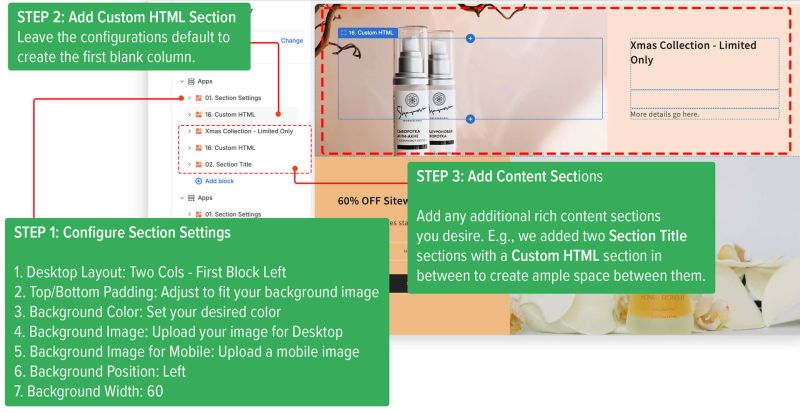 STEP 1: Configure Section Settings
STEP 1: Configure Section Settings
- Desktop Layout: Two Cols - First Block Left
- Top/Bottom Padding: Adjust to fit your background image
- Background Color: Set your desired color
- Background Image: Upload your image for Desktop
- Background Image for Mobile: Upload a mobile image
- Background Position: Left
- Background Width: 60
STEP 2: Add Custom HTML Section Leave the configurations default to create the first blank column. Keep the configurations as default to create the first blank column.
STEP 3: Add Other Content Sections
You can include any additional rich content sections you desire. In this example, we incorporated two Section Title sections with a Custom HTML in between to create ample space between them.
Create an overlapping layout
You can also set the background image width flexibly to create an overlapping layout like the example below:
- STEP 1. In Section Settings, select the "2-col: First Block Left" layout. Upload a background image, position it to the left, and set the background width to 60%.
- STEP 2. Include a Custom HTML section for a blank column.
- STEP 3. Add a Section Title for the text block in the right column.
Add the background image
You can set the section's background image. Once added, you can click the Change button below the image to delete or change it.
Add the background video
- In the Section Settings block, select a video to use as the section's background. After adding it, you can click the Change button below the video to delete or replace it.
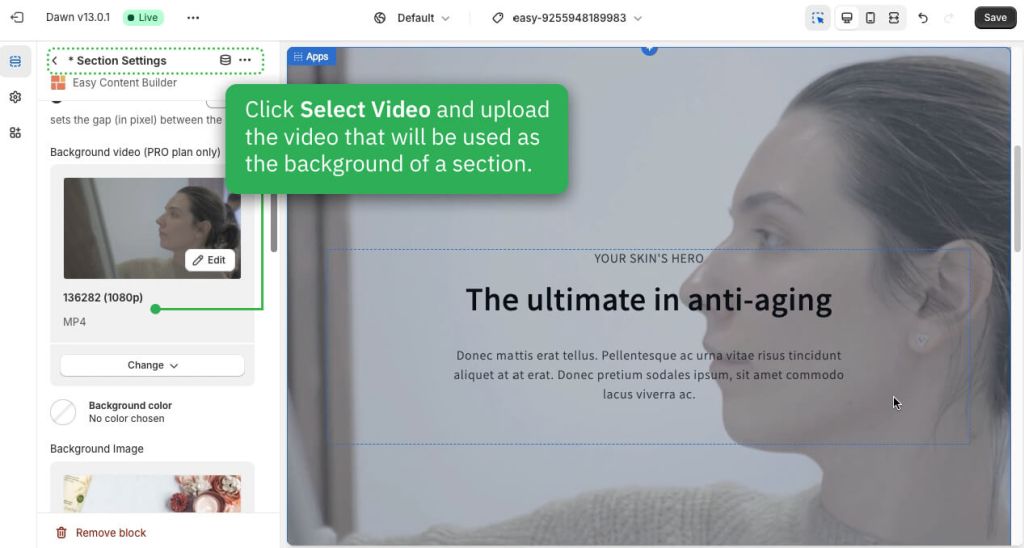
Add the background color
In the Section Settings block, you can customize the section's background color using CSS or Gradient options. Simply click the Background Color and use the Gradient color picker or enter the new color value in the CSS Code field.
Add the background container color
In Section Settings, you can customize the container's background color. You can also apply the background color of the container at the block level, such as with the Section Title block demonstrated in the video tutorial below:
Set text color
In the Section Settings block, customize the text color within the section, which is great for adjusting the text color when using a dark background.
Add space between columns and rows within a section
When configuring a section with multiple columns (ranging from 2 columns to 4 columns or utilizing a hierarchical grid), you may find it necessary to add padding between the columns or rows within that section. This can be accomplished by adjusting the Column gap or Row gap (in pixels) under the Section Settings.
Adjust the top/bottom padding and margin between sections
As you know, each section made with Easy Content Builder has Section Settings and one or more selectable content blocks (like Icons With Text or Circle Menu), as shown in the screenshot below.
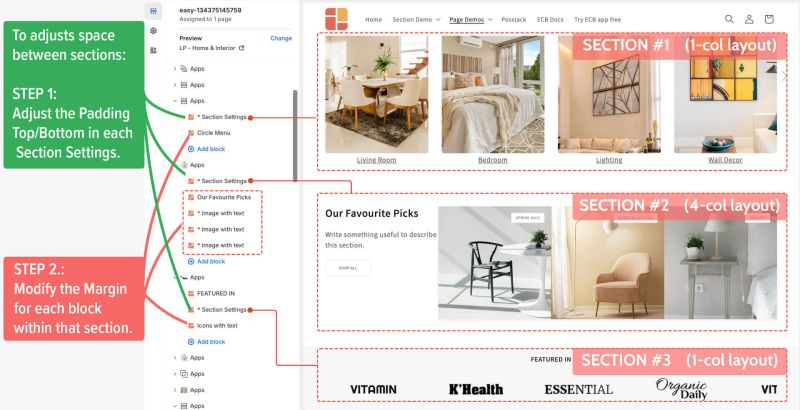 The example displays three sections. To adjust the space between them, follow these steps:
The example displays three sections. To adjust the space between them, follow these steps:
- Step 1: Change the Padding Top/Bottom in each section's Section Settings.
- Step 2: Adjust the Margin for each block within the section.
When two sections have background images or colors, they will appear side by side with no spacing.
To create space between two sections with background colors or images, insert a blank Section Settings between them and adjust the Top or Bottom Padding as needed.
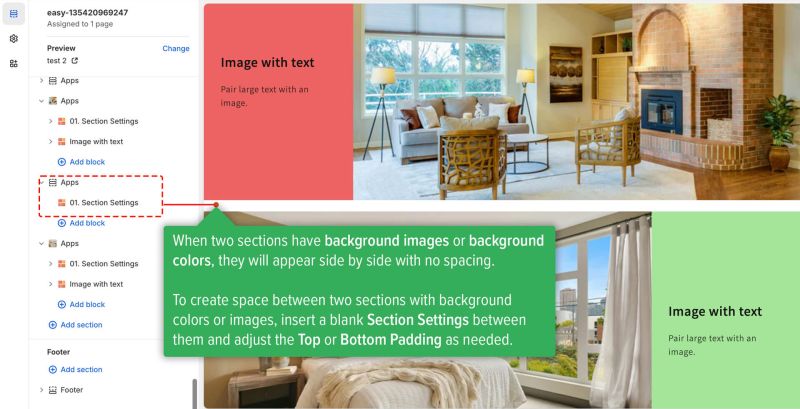
Next Step
- Edit Block Settings.
